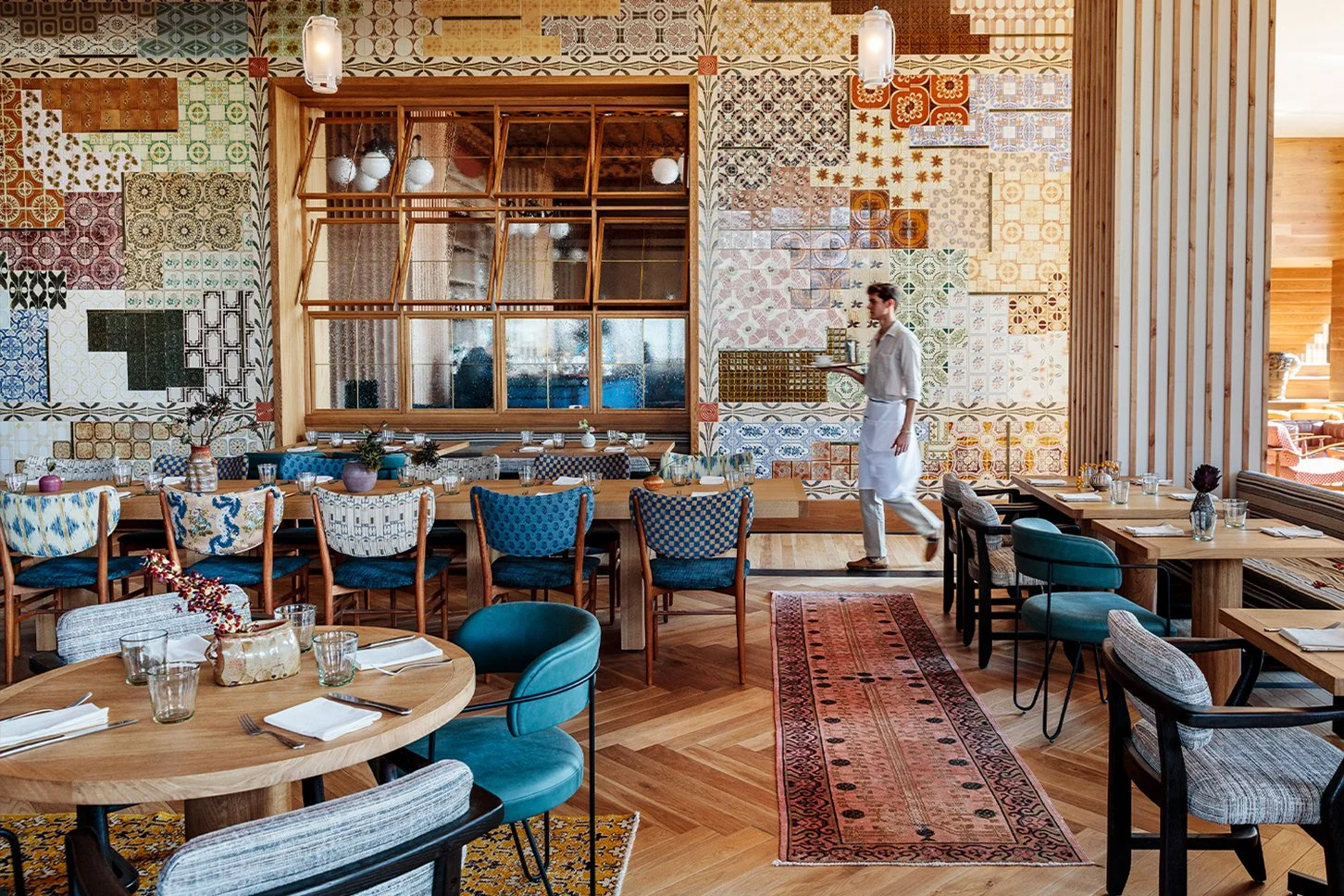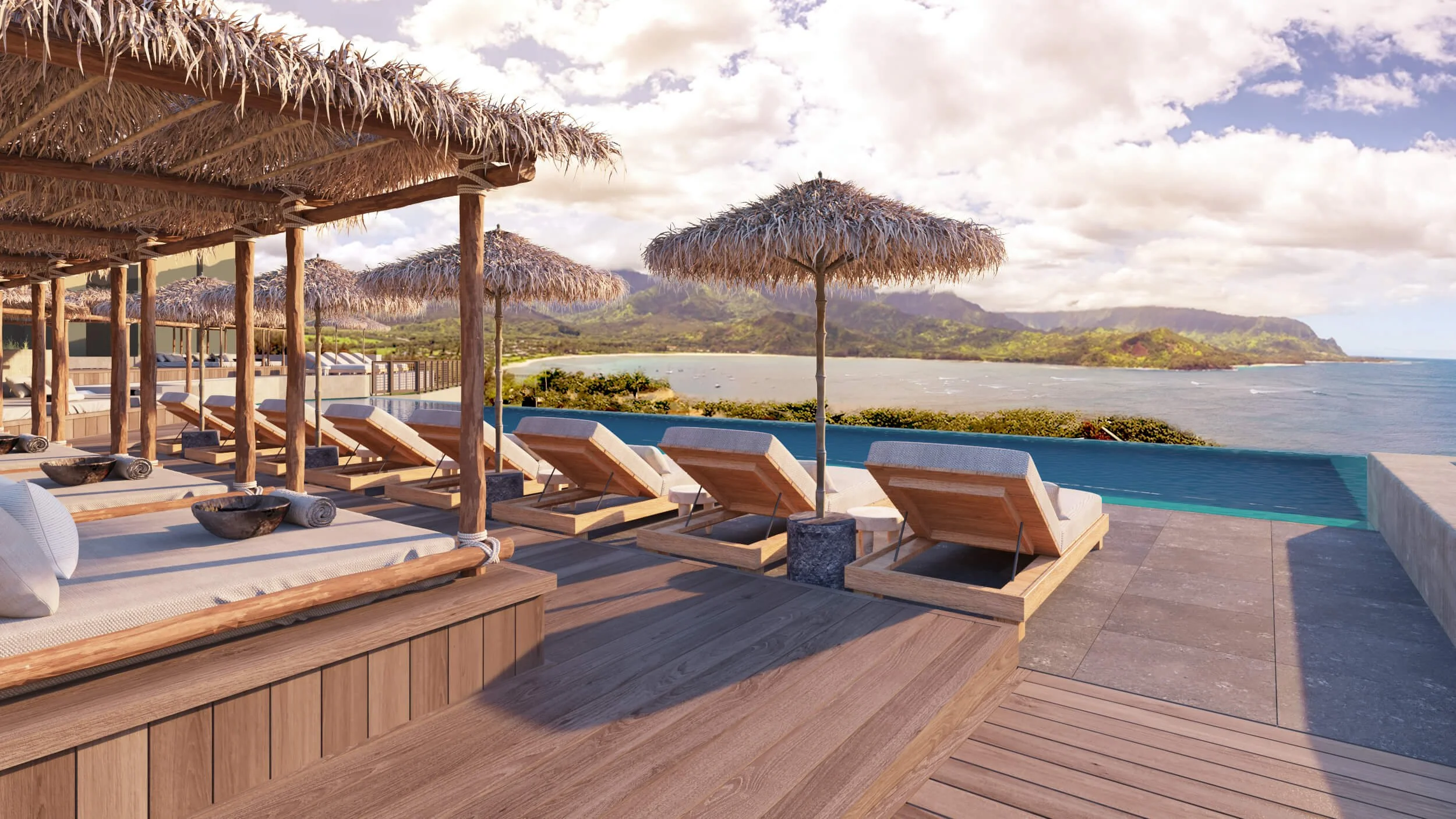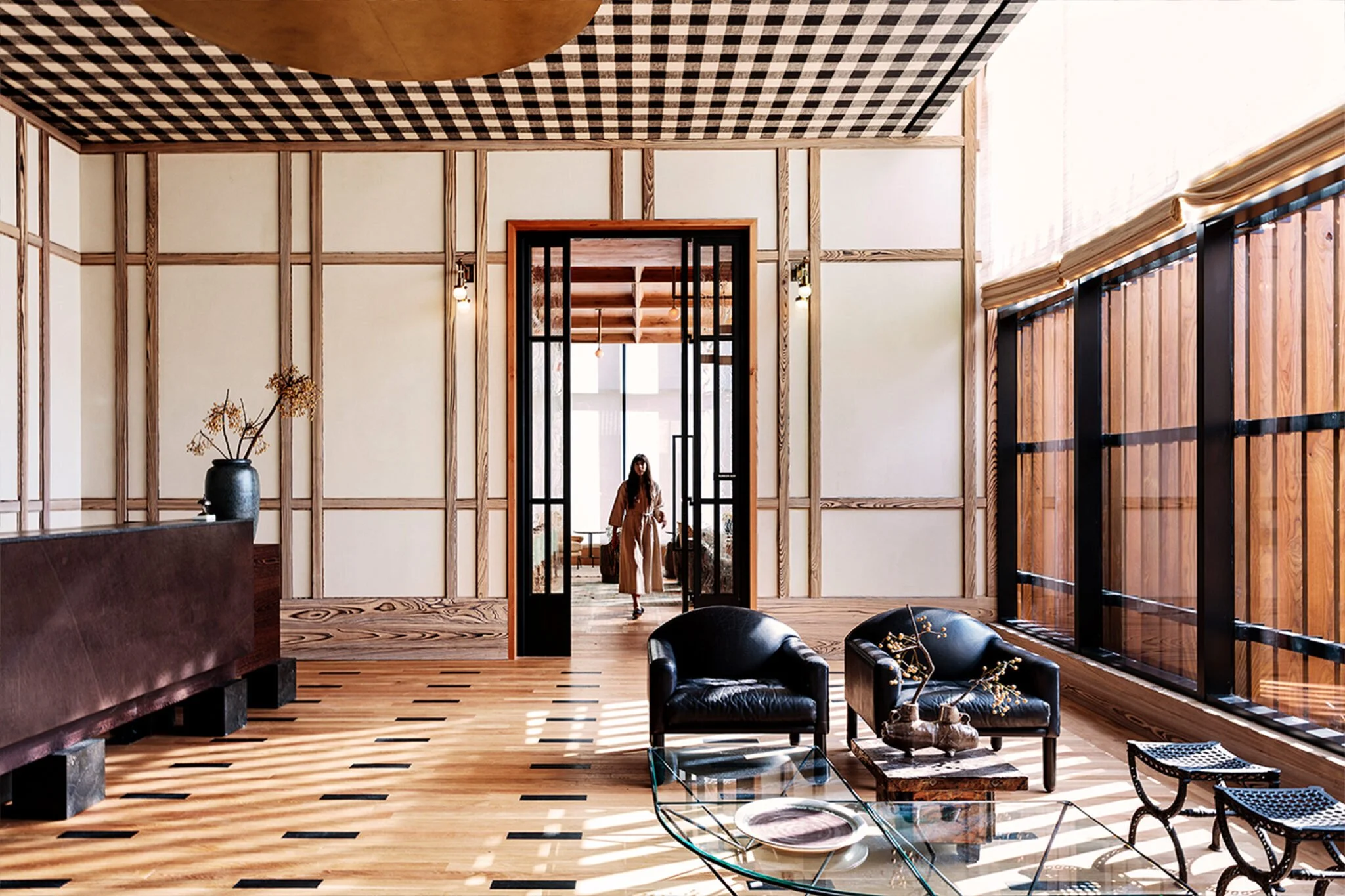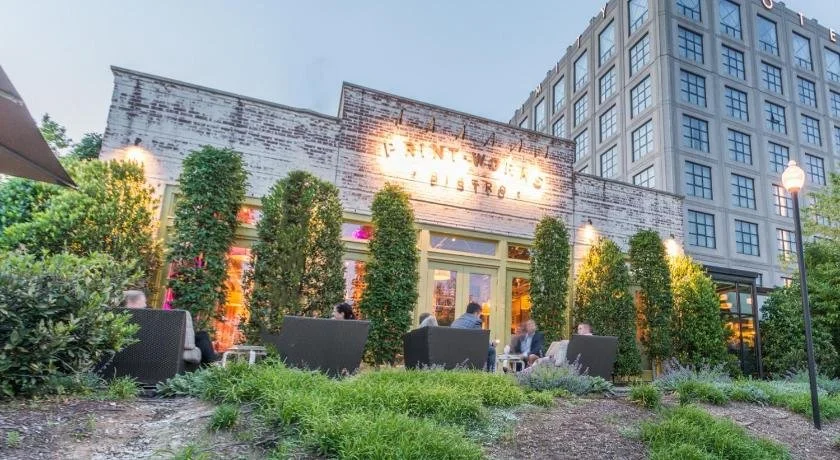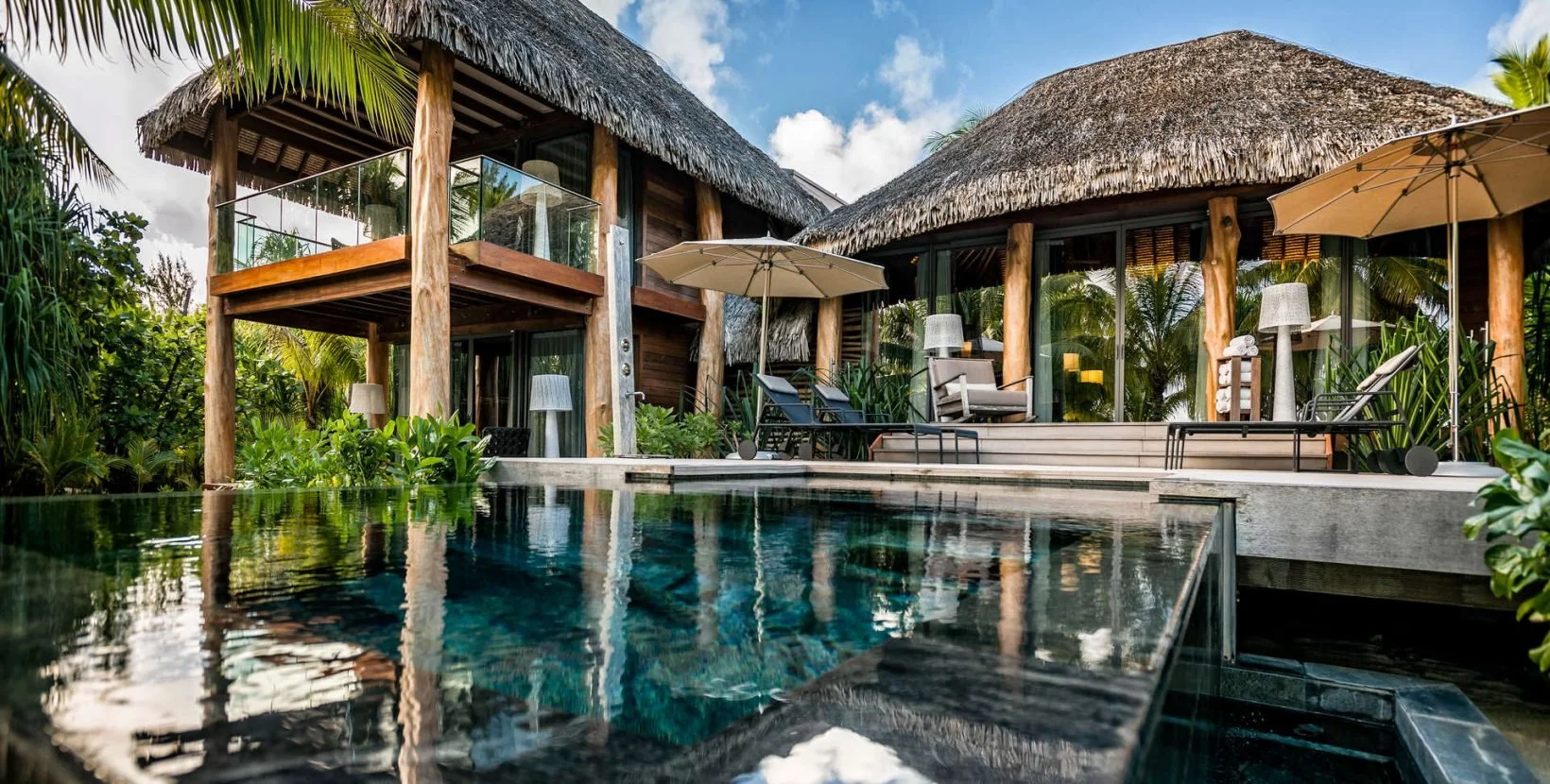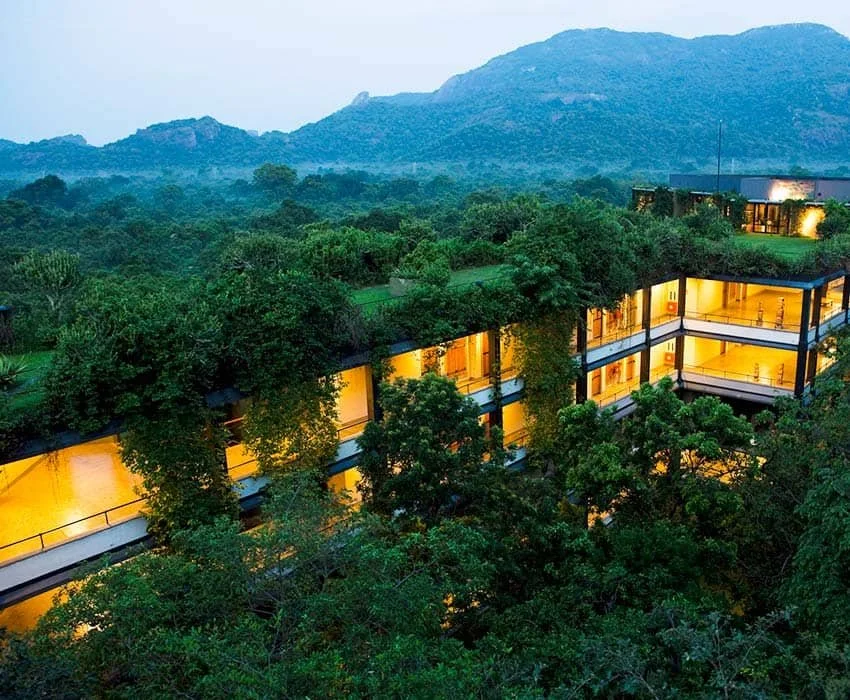Eco-Friendly Hotels to Consider for Your Next Vacay
Travel isn’t always known for its eco-friendly nature, which can lead people who are passionate about sustainability to limit travel or avoid it altogether. To combat the waste and overuse often seen in the hospitality industry, some hotels are implementing more eco-friendly, sustainable practices. If you would like to minimize your environmental impact while traveling, staying at a LEED-certified hotel is a great start.
Why LEED Certification Is Important
LEED (Leadership in Energy and Environmental Design) is an independent, non-profit, third-party rating system that was established by US Green Building Council (USGBC). When a hotel is LEED-certified, you can be sure that they are going above and beyond to implement sustainable practices in its daily operations.
There are different levels of LEED certification. Hotels that are LEED-certified earn points for each sustainable practice that they use, falling into the following categories:
Sustainable Sites
Water Efficiency
Energy & Atmosphere
Materials & Resources
Indoor Environmental Quality
Innovation in Operations
Regional Bonus Points
The levels are determined by the number of points a hotel receives.
Platinum: 80 points or higher
Gold: 60-79 points
Silver: 50-59 points
Certified: 40-49 points
Below are a few of our favorite LEED-certified hotels to consider for your next trip.
1 Hotels
1 Hotels take an all-inclusive approach to sustainability. As a collection of hotels and residences across the globe, 1 Hotels is more than just a hotel company; it’s a mission.
Currently there are hotels in Los Angeles, NYC, South Beach, Toronto, Nashville, San Francisco, Cabo and Haitang Bay with more “sprouting soon” in Paris, London, Greece, Hawaii, Melbourne, and Copenhagen.
In addition to being LEED certified, all U.S. the hotels have been carbon neutral since 2018. The 1 Hotel company has also offset over 19,000 tons of carbon and has donated more than $500,000 dollars to organizations like Housing Works, The Nature Conservancy and Oceanic Global.
At the 1 Hotels restaurants, herbs and veggies are grown in-house and other ingredients are locally sourced. They have onsite composting, use energy efficient certified kitchens, use natural fuel for cooking, and provide zero waste food, drinks and events.
No single use plastics are used anywhere in the hotels, hangers are made from 100% recycled materials, room keys are made from recycled wood and many building and furniture materials are reclaimed. The house cars are always 100% electric and they use an infrared HVAC system that operates based on occupancy. In addition, they use in-house air and water filtration systems and low flow plumbing.
Every 1 Hotel uses the sustainable design known as biophilic design, which is intended to increase one’s connectivity to nature. Obviously, there are plants everywhere - potted plants in guest rooms and common areas, moss walls, and skylights to provide extra connections with the natural world. The grounds are always landscaped with indigenous plants to ensure no additional water is needed for their care.
Outside of the hotels, the company works to spark conversation and provide education about sustainability through organized volunteer activities and paid volunteer teams.
“I wanted to capture the beauty of nature in a hotel and commit to safeguarding it as best I can, a responsibility that I believe we all share.”
- Barry Sternlicht, Founder
1 Hotels has a wide range of offers across locations from 30% off best rates to discounts on spa services, food and beverage and parking.
Austin Proper Hotel
Austin, Texas is a city known for its progressive ideals so when it comes to sustainability, it makes sense that it would have at least one LEED Certified Hotel.
The Austin Proper Hotel and Residences is a luxury sustainable hotel and apartment building situated right in the heart of Austin Downtown’s Second Street District. Guest rooms were designed by renowned interior designer Kelly Wearstler and you can’t help but be inspired by every inch of this place. Drawing inspiration from Austin’s local “vibe,” Kelly incorporates locally-sourced art into the decor.
This hotel has 244 rooms and suites and has earned to Gold LEED Certification for building construction. They earned this certification by using sustainable practices like reclaimed water irrigation systems and insulated windows that greatly reduce energy usage.
The hotel provides bicycles for an eco-friendly way to see the town and luckily the hotel is within walking distance of plenty of Austin’s finest entertainment and restaurants, lessening your carbon footprint further.
Austin Proper Hotel offers include extended stay discounts, advanced booking discounts, 4th night free and more.
Proximity Hotel
As one of the first Platinum LEED Certified Hotels in the country, the Proximity Hotel in Greensboro, North Carolina takes on over 70 sustainable practices in daily operations.
The hotel began the sustainability process during construction. The building materials are ultra-efficient, with a bistro bar made from salvaged walnut trees, large energy-efficient operable windows, and reinforced steel with 90% post-consumer recycled content. They also recycled 87% of their construction waste.
Proximity Hotel continues their eco-friendly approach by harnessing the power of natural, renewable energy. 100 solar panels heat all the hot water used in the hotel, they use geothermal energy in the refrigeration system, and have greatly reduced water usage by installing ultra-efficient Kohler appliances. With all these modifications and more, the Proximity Hotel and restaurant use 39% less energy than a typical hotel and restaurant.
Proximity Hotel goes one step further with their sustainability education center that provides tours of their “green” hotel so that you can see their sustainability efforts up close and personal.
The Brando
If you’re looking for sustainable international travel but make it luxury, The Brando in French Polynesia is the spot. Co-founder Marlon Brando was a long time resident of Tahiti and passionate about preserving the environment and culture. His vision was to create a “post-carbon” hotel and the result is a private island resort that is both luxurious and eco-conscious.
Achieving Platinum certification, the highest level of LEED certification required thoughtful design and construction taking into consideration native floral and fauna and natural materials available. Over 86% of wood building materials are Forest Stewardship Council (FSC) certified.
The hotel uses collected rainwater for landscaping irrigation and recycles wastewater using a tidal treatment system. The Sea Water Air Conditioning system (SWAC) harnesses the cold of the deep ocean and provides low-energy, high-efficiency cooling for all the buildings. 4000 solar panels provide half of the resort’s energy and the remaining energy is produced in their coconut oil biofuel power station.
Another exciting sustainability feature of The Brando are the 67 bee hives onsite that provide some of the best tasting honey in the world. With no pollution or natural predators and plenty of gorgeous vegetation, the bees on Tetiaroa produce massive amounts of honey each year that is used in the resort restaurant and sold bottled in the gift shop.
“Tetiaroa is beautiful beyond my capacity to describe. One could say that Tetiaroa is the tincture of the South Seas.”
- MARLON BRANDO, Co-Founder
Dambulla Hotel Heritance Kandalama
Another eco-friendly international hotel to consider is the Heritance Kandalama in Sri Lanka. This beautiful LEED Certified Hotel was established over 25 years ago and was the first ever LEED Certified Hotel, making it a pioneer in the sustainable hospitality industry.
The eco-friendly practices of the hotel include recycling 100% of its wastewater and managing energy to reduce emissions. The hotel is built in the shape of a bird and on stilts to maximize rainwater flow and has indigenous horticulture planted on 80 percent of its rooftops.
The hotel also has undertaken the conservation of 58 acres of forest area within the hotel itself as well as a total of 198 acres of forest in total, protecting 28 species of native flora, 183 species of birds, 19 species of reptiles, 64 species of dragons and butterflies.


